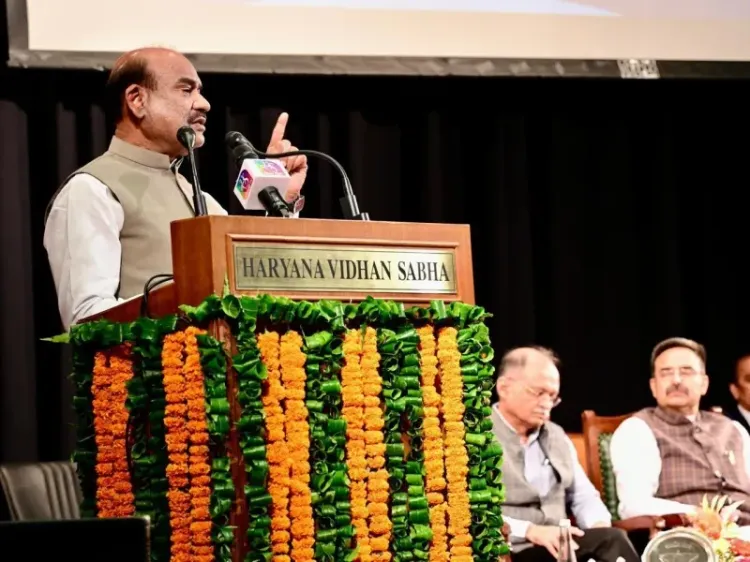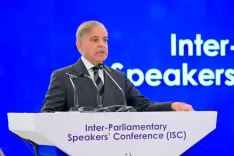How Do Meaningful House Debates Build Public Trust in Democracy? Om Birla

Synopsis
Key Takeaways
- Public trust in democracy is anchored in legislative accountability.
- Effective legislative drafting leads to meaningful discussions.
- Clear laws minimize judicial review conflicts.
- Strong legislative frameworks ensure laws reflect public aspirations.
- Training programs enhance the capacity of legislative officials.
Chandigarh, Sep 26 (NationPress) Lok Sabha Speaker Om Birla reflected on the recurrent interruptions in Parliament on Friday, stating that public confidence in democracy is strengthened only when legislatures operate in a transparent and responsible manner while engaging in significant discussions.
During a two-day workshop on legislative drafting, conducted in collaboration with the Haryana Legislative Assembly and the Institute of Constitutional and Parliamentary Studies (ICPS), Birla emphasized that robust legislative drafting lays the groundwork for fruitful discussions in the House and fosters the creation of laws that prioritize the needs of the people.
He remarked that consensus and dissent are the pillars of democracy, but with solid legislative drafting, ideological differences will remain confined to principles, eliminating concerns regarding the phrasing of a law.
Birla stressed that the essence of democracy is rooted in the public's trust, which is only bolstered when legislatures and Parliament operate in a clear, organized, and accountable manner, as stated in an official announcement.
In his address to legislators at the Mahatma Gandhi State Institute of Public Administration (MGSIPA) in Chandigarh, Birla declared, "The significance of legislative drafting in the law-making process cannot be overstated."
He noted that when legislative drafting is straightforward and devoid of ambiguity, it minimizes unnecessary interference during judicial reviews.
Birla pointed out that the Constitution serves as a guiding principle. He mentioned that under this Constitution, a distinct separation of powers is established among the legislature, the executive, and the judiciary, and laws should be drafted with a focus on welfare, simplicity, and clarity.
He further stated that the better the drafting, the more effective, accurate, and just the law will be. "A clear and straightforward legislative language is the cornerstone of effective laws," he asserted.
Birla emphasized that legislative drafting transcends being a mere technical task; it is the heart of democracy. "Only when bills and laws accurately embody constitutional values and reflect the aspirations of the populace can the democratic system achieve its true purpose," he remarked.
He concluded that such initiatives not only build the capacity of officials but also enhance the prestige and functionality of legislative institutions.
These programs familiarize officials and staff with the intricacies of legislative processes while empowering them to cultivate a legislative language and format that is equitable, transparent, and accessible to all segments of society.









